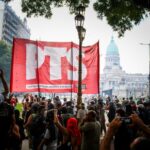
Two parliamentary defeats in Congress, a warning from Waterloo and another visit by the PSOE to Switzerland. Carles Puigdemont has not only gone from words to actions in the last week, he has also sharpened his words: “Pedro Sánchez is not trustworthy.” In the midst of budget negotiations, he first asked the President of the Government to submit to a question of confidence and check whether he has the support of the majority of the Chamber.
As a warning, the Junts parliamentary group later overturned two votes together with the Popular Party. In the first of them, ex-convergent and popular parties had agreed to introduce an amendment to a law to once again suspend the 7% tax on the value of electricity production from 2025. It went ahead with the support of Vox, ERC and PNV and now PSOE and Sumar are looking for formulas to reverse it before the law passes through the commission and returns to the plenary session.
The second notice took place in an initiative proposed by the PSOE so that people of legal age can anticipate their wishes regarding the care and assistance treatment they wish to receive at the end of their life, a formula to facilitate the application of the law of euthanasia. This vote showed what the hemicycle’s score could be if the right goes as a bloc: 180 seats, which come from adding those of the PP and Vox to those of Junts and PNV.
So the week closed on Friday with another visit by the Secretary of Organization of the PSOE, Santos Cerdán to Switzerland to meet with Junts, who judging by Puigdemont’s reaction has not closed the crisis. “We cannot continue like this,” said the former president, hours after the meeting with the socialists.
On the other side of the table, the Socialists still hope to be able to redirect the conversations with Junts again, as stated by the party’s number two, Santos Cerdán, in the first interview granted after the meeting in Switzerland. Cerdán sums it up like this: “Last week we were negotiating the Organic Immigration Law, in which I believe we were taking steps in the right direction. We agreed on a tax reform two weeks ago with them. What has happened will have to be asked to Junts. I can understand that they complain about the delay of some of the agreements, but obviously some may be due to their own cause and others are due to external causes.”
Among these unrelated causes, the number two of the PSOE places the application of the amnesty law that is the responsibility of judges, including those, who according to Cerdán “have lost respect for the Legislative Power.” Regarding the small print of the meeting, Cerdán avoids entering because he has never publicized those meetings because according to him “discretion is essential for a negotiation to prosper.”
And all this happens in the midst of a very heated political-media-judicial environment in which the right, also those who operate outside Congress and politics, try to close not only the parliamentary course, but also the legislature.
With Dana and Mazón’s management in Valencia now gone from most of the covers and editorials, the popular ones make a fuss about Puigdemont’s party, which one day they equated with terrorism, and support the thesis that the fall of the Government is just a matter of time. Even its most incendiary spokesperson, Miguel Tellado, says he is happy with the agreements with Junts and Feijóo repeats that between Sánchez and Puigdemont, the one who is not trustworthy is the first, who has already said it before to the Catalan right.
Junts does not mince words with its warnings: its parliamentary spokesperson in Congress, Miriam Nogueras, implied that she does not even believe that they are going to negotiate the general budgets of the State, the oxygen tank that the Government needs to get the legislature back on track, and for those who had already started socialist and ex-convergent contacts, they go to negotiate.
At the end of the agonizing week for the Government, when everything was planned in Santander for the Conference of Presidents, the forum where Pedro Sánchez and the regional presidents, including Salvador Illa and Imanol Pradales, addressed issues such as housing and regional financing with little chance of agreement, after that unsuccessful meeting in Switzerland, Puigdemont goes further and tells his party that he is prepared to “assume any political and personal cost” for the decisions they make.
Including a veto of the bills that leads the country to early elections?
The question that the Government and the legislature are hanging on is how much is real in Puigdemont’s ultimatums, who already overturned budgets once and sent the PSOE Government to elections in 2019.
Stretching the rope to the maximum in the negotiation with the Government is the slogan that Junts has imposed on itself in a legislature where the arithmetic of 23J has given it the role of hinge. How much is the maximum? As much as possible without breaking the relationship, that is, just before it is more convenient for Pedro Sánchez to call elections again or resign himself to losing votes.
Those of Carles Puigdemont have lost governments and power in practically all institutions in recent years, so the card of influence with Moncloa is the only one they have left. But in the party they are convinced that it is no small thing and that, played well, it can serve to wear down both ERC, in contrast between the type of negotiation practiced by both pro-independence parties, and Salvador Illa himself.
At Junts they believe that the president of the Generalitat and his party “have little meaning” in Madrid and that the prominence of its leader in the Lower House, Míriam Nogueras, will make this more evident every day.
Puigdemont’s appearance from Brussels last Monday was one more piece in this strategy. With the request that Sánchez submit to a question of confidence, an examination that only depends on the president and that the opposition cannot force, Junts intended to once again place itself at the center of the political scene as the formation that can never be taken for granted. in the government majority. In short, gain prominence to remind their voters that they are the ones who determine the legislature.
Negotiations on taxation are a great opportunity to set a profile, especially for a group that has rebuilt relationships with business organizations. The last package, which included a European directive with a minimum of taxes on companies, as well as special rates for banking and energy companies, ended up weakening due to the practically immovable position of Junts. This week, Puigdemont’s people have gone one step further and have agreed with the PP on a tax amendment to energy generation, which has also had the votes of ERC or PNV.
Placing stones in the Government’s path is a simple way to garner attention and prominence, but the jackpot for Junts is not there but in achieving economic and skills transfers for Catalonia. For this reason, Junts has been engaged in discreet negotiations with the Executive for weeks so that the Generalitat can manage various issues related to immigration policies. At the same time, they discredit ERC’s negotiation for “singular financing” while defending their own concert model.
For Puigdemont’s party to obtain powers for Catalonia on immigration or other matters would be a very important milestone for Junts, which already described as “historic” the negotiation for the official status of Catalan in the EU, which Puigdemont now recognizes has not borne fruit. But the symbol of obtaining powers would be enough for the independence party to display a conquest, even more so when these powers would have to be managed by the Government of Illa, which would have had a minimal participation in the transfer.
The undisguised objective of Junts is to be a party capable of obtaining from the opposition more concessions for Catalonia than the Government itself is capable of obtaining. Or, at least, pretend so. A strategy that, by the way, is not new: in Euskadi it was practiced by Íñigo Urkullu from the opposition to Patxi López and, a little before that, Artur Mas did the same when he tried to bypass Pasqual Maragall against José Luis Rodríguez Zapatero in the negotiation of the Statute.
Puigdemont’s idea now is to once again be “the party that achieves things” in Madrid, for which they are willing to make the most of the negotiation with Sánchez. But at Junts they are perfectly aware that the rope has a limit and that, if they break it, the scenario is not favorable to them. On the one hand, no matter how much they cultivate the image that they would be able to reach an agreement with the PP, the reality is that an independence party is very difficult to combine with Alberto Núñez Feijóo and almost impossible with Vox. On the other hand, the hinge position is a carom that might not be repeated.
Source: www.eldiario.es

